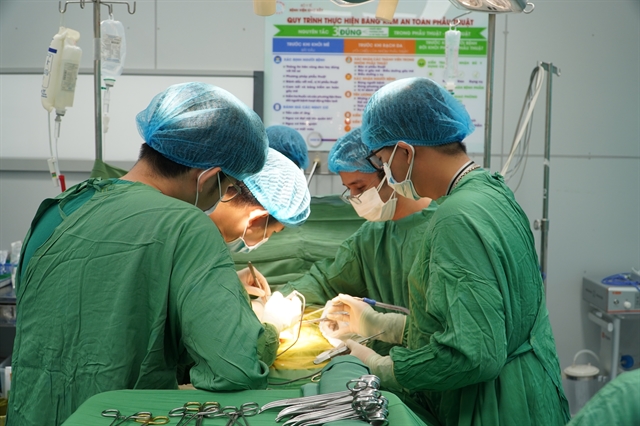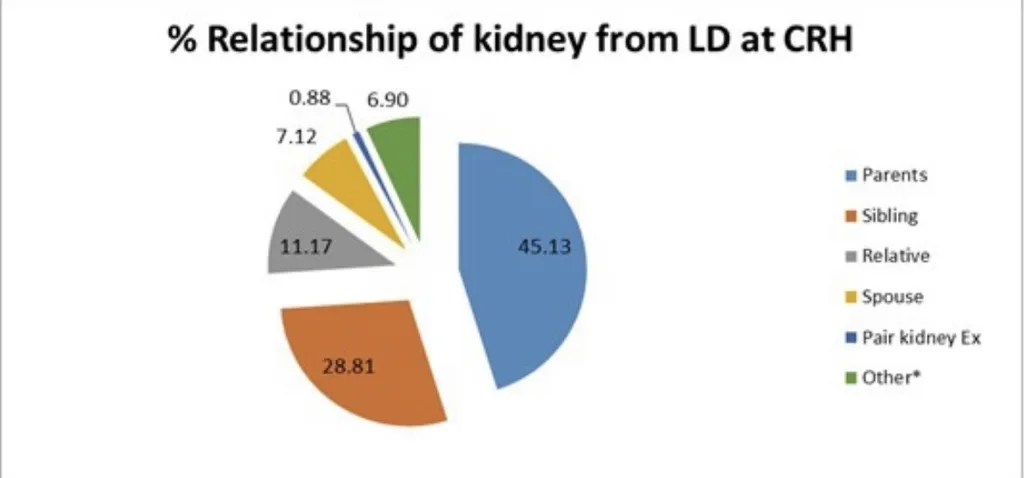 Society
Society

 |
| Doctors at Chợ Rẫy Hospital transplant a kidney taken from a deceased donor on February 26. — Photo courtesy of the hospital |
Thu Hằng
HCM CITY — Over the 30 years since performing its first kidney transplant from a living donor, Chợ Rẫy Hospital in HCM City has consistently developed expertise in organ transplantation, helping prolong and improve the lives of thousands of people.
It then performed the country’s first successful kidney transplant from a brain dead donor in 2008.
It has done more than 1,060 kidney transplants in the past 30 years, with organs taken from deceased donors accounting for only 5 per cent, Assoc Prof Thái Minh Sâm, head of the hospital’s department of urology, said.
Complex procedures such as living paired-kidney exchange transplant and ABO-incompatible living-donor kidney transplant have also been successfully conducted, helping more and more patients with kidney disease to get a transplant, he said.
“The hospital has successfully performed all [known] kidney transplant procedures.”
Kidney transplant recipients have had more than 300 babies subsequently in the past 30 years, he added.
Dr Phạm Thanh Việt, head of the hospital’s general planning department, said kidney, liver, heart, bone marrow, and corneal transplants and skin grafts have been done.
The hospital plans to send doctors to developed countries to learn lung and intestine transplant procedures, he said.
Organ procurement and transplantation network
More than 1,110 organ transplant surgeries have been conducted so far at the hospital, including nine heart transplants, Dr Dư Thị Ngọc Thu, head of the organ transplantation coordination unit, said.
But transplants from living donors accounted for more than 95 per cent, she said.
There is a severe shortage of deceased donors, she said.
“The demand for organs continues to exceed supply, and many people waiting for a transplant die every day.
“A single organ donor can save seven to eight lives.”
 |
| Relationship of kidney from living donors at Chợ Rẫy Hospital. Living donors include parents, sibling, relative, spouse, pair kidney exchange and union between families by marriage, monks, and adoptive parents. — Infographic courtesy of the hospital |
In Việt Nam, thousands of people need an organ transplant every year while hospitals only get organ donations from around 10 brain-dead people, according to the National Coordination Center for Organ Transplantation.
In 2018, Chợ Rẫy Hospital, Thống Nhất Hospital and Children’s Hospital No.2 signed an agreement for the allocation of donated kidneys for transplants under a project aimed at increasing potential donors and prevent organ trafficking from living donors.
The project developed the first organ procurement and transplantation network in the city.
The country’s first software waiting list registry and organ donation, management, allocation, and transplant was launched last year as part of the project.
Between 2020 and 2022, it received 19,983 registrations for organ donations after death, thrice the number in the previous three years.
Ensuring transparency and fairness in organ allocation at local and national levels is critical, Thu said.
The network would continue to expand to take in other organ transplant centers in the country, she added.
Doctors at Children’s Hospital No.2 successfully transplanted a kidney in a child with end-stage kidney disease with the donor being a brain-dead adult.
The the National Coordination Center for Organ Transplantation and Chợ Rẫy Hospital allocated the kidney from the young brain death donor to the Children’s Hospital No.2 under the system allocation criteria.
The Children’s Hospital No.2 has performed 25 liver, 24 kidney and five stem cell transplants so far, Dr Trịnh Hữu Tùng, its director, said.
It now performs liver and kidney transplant surgeries without assistance from foreign specialists, he added. — VNS